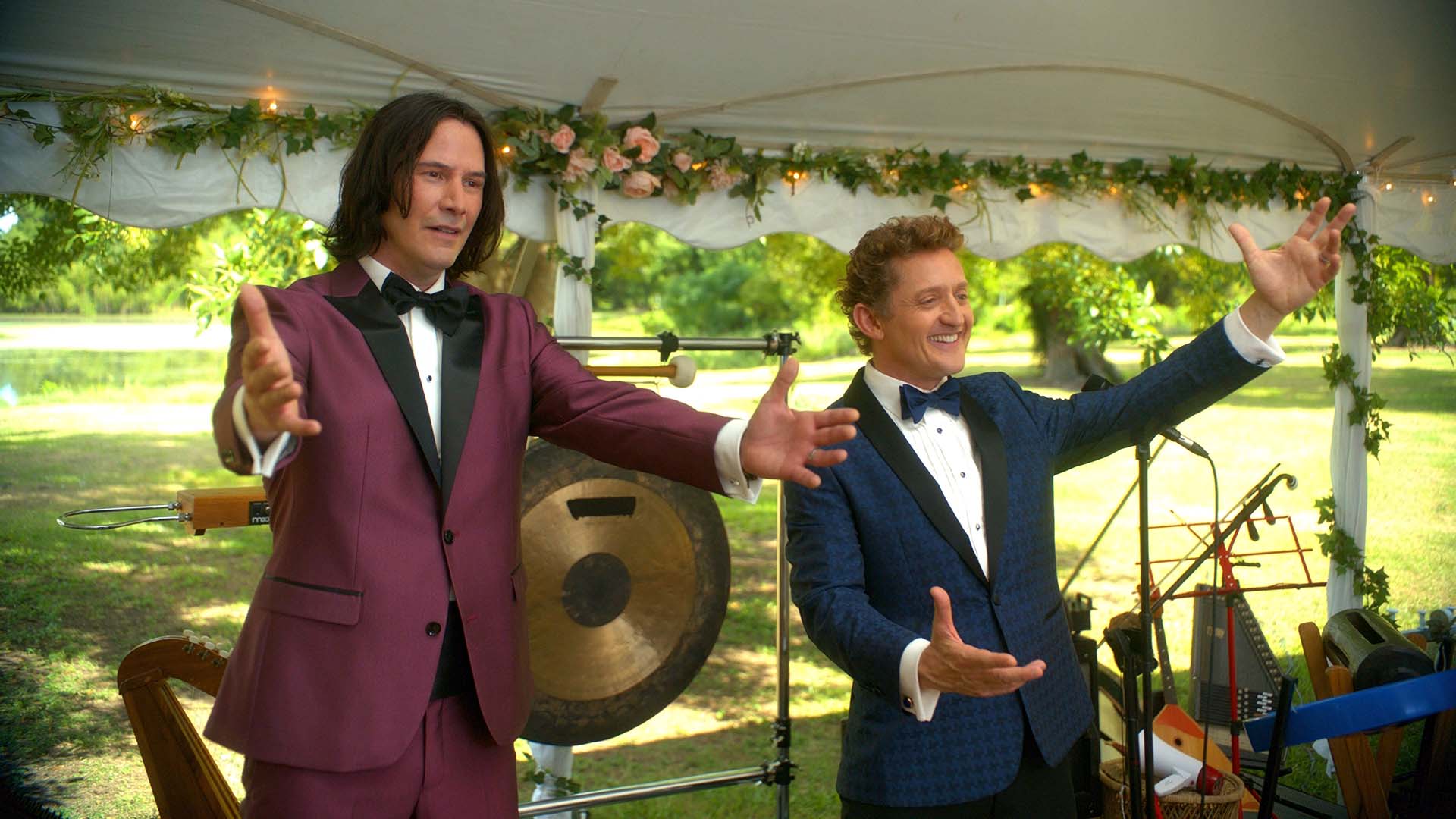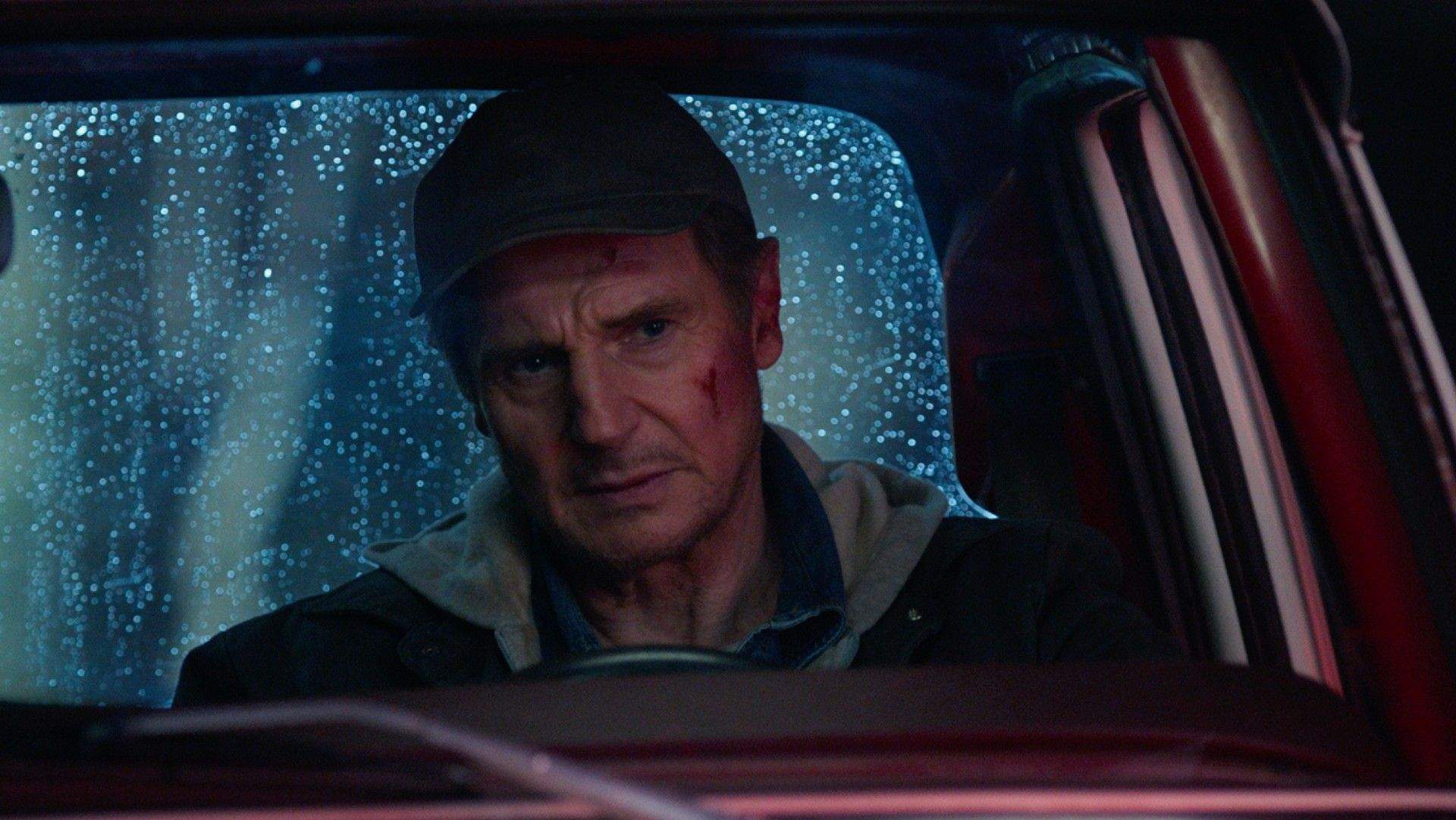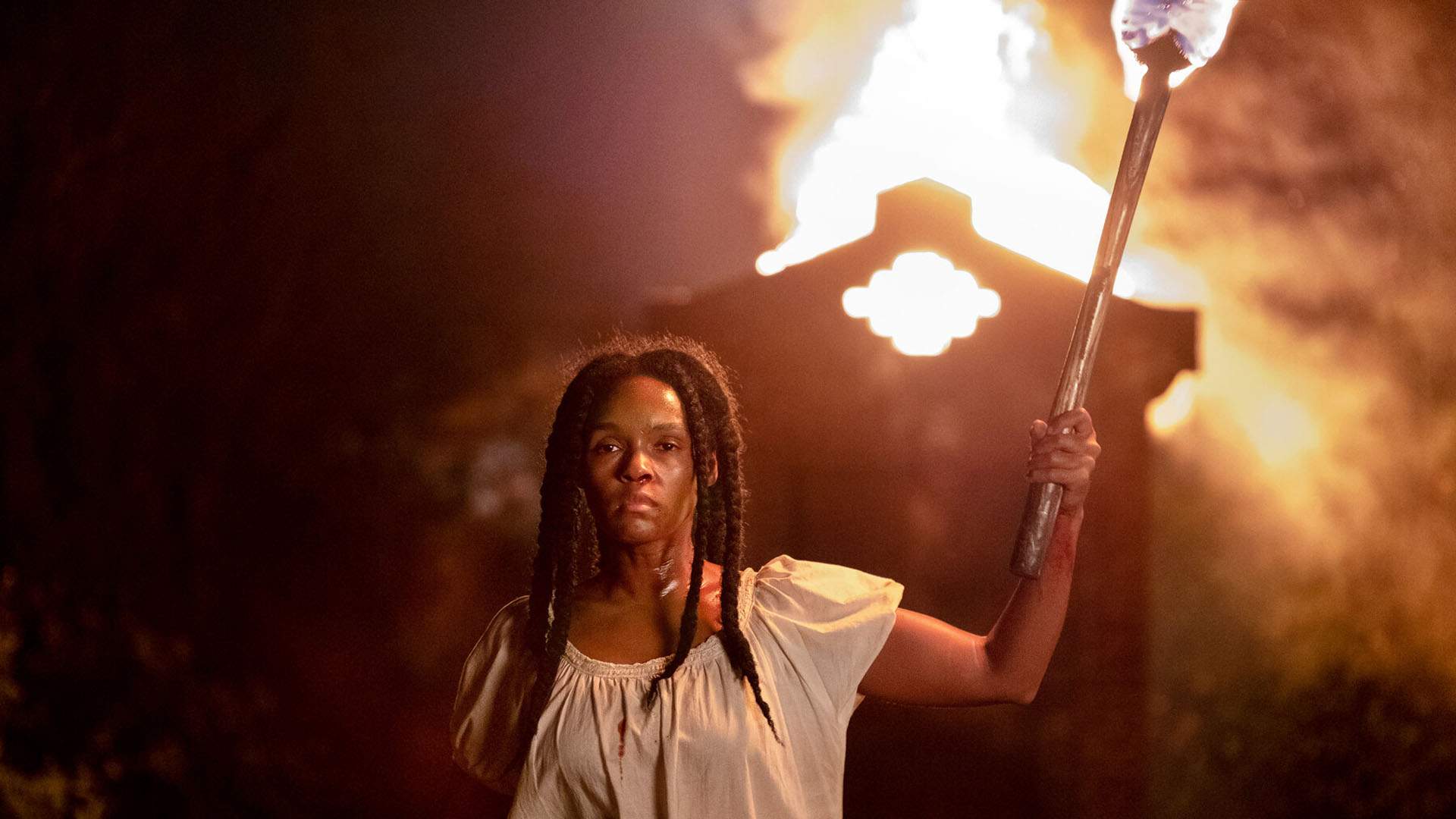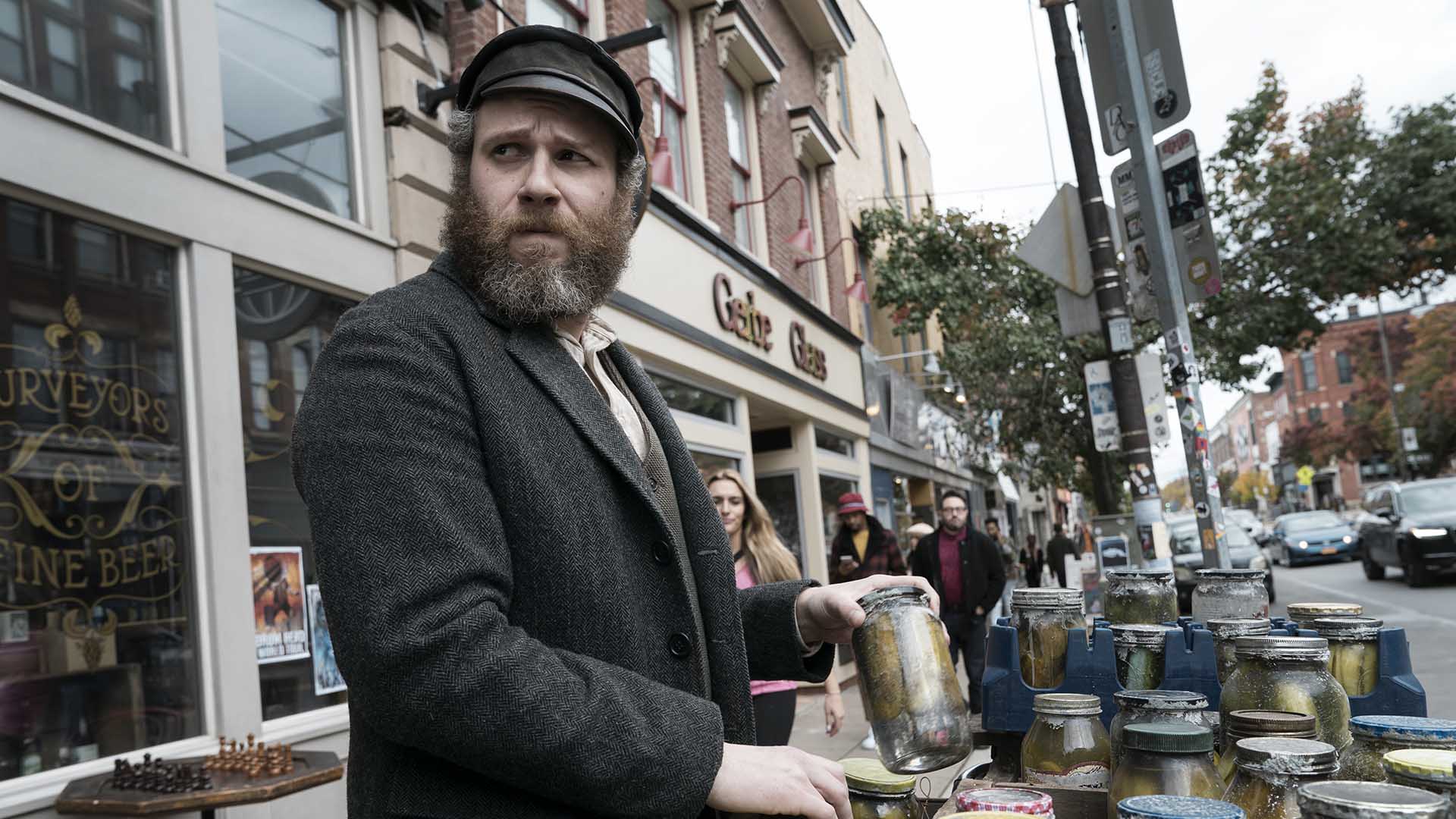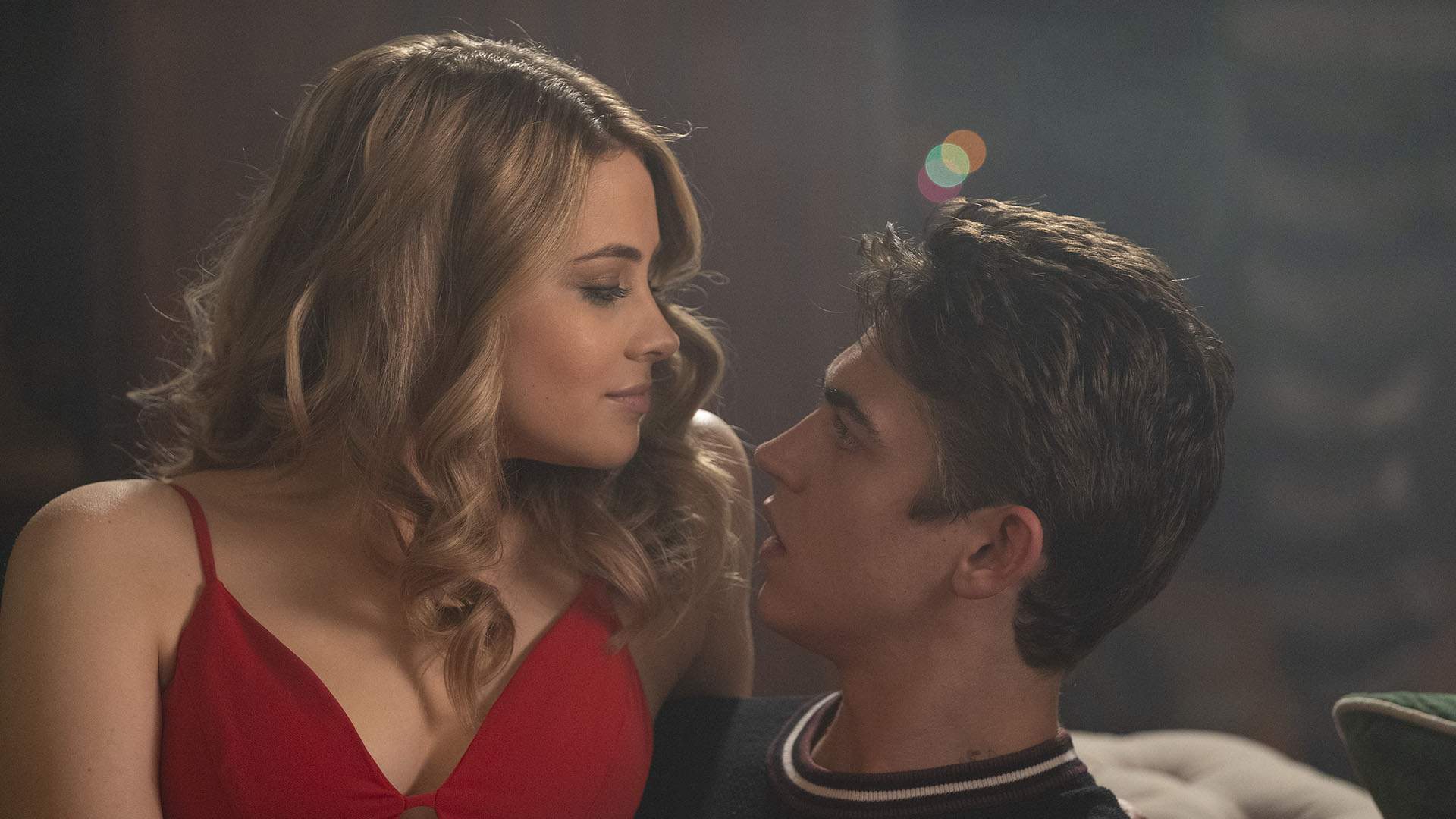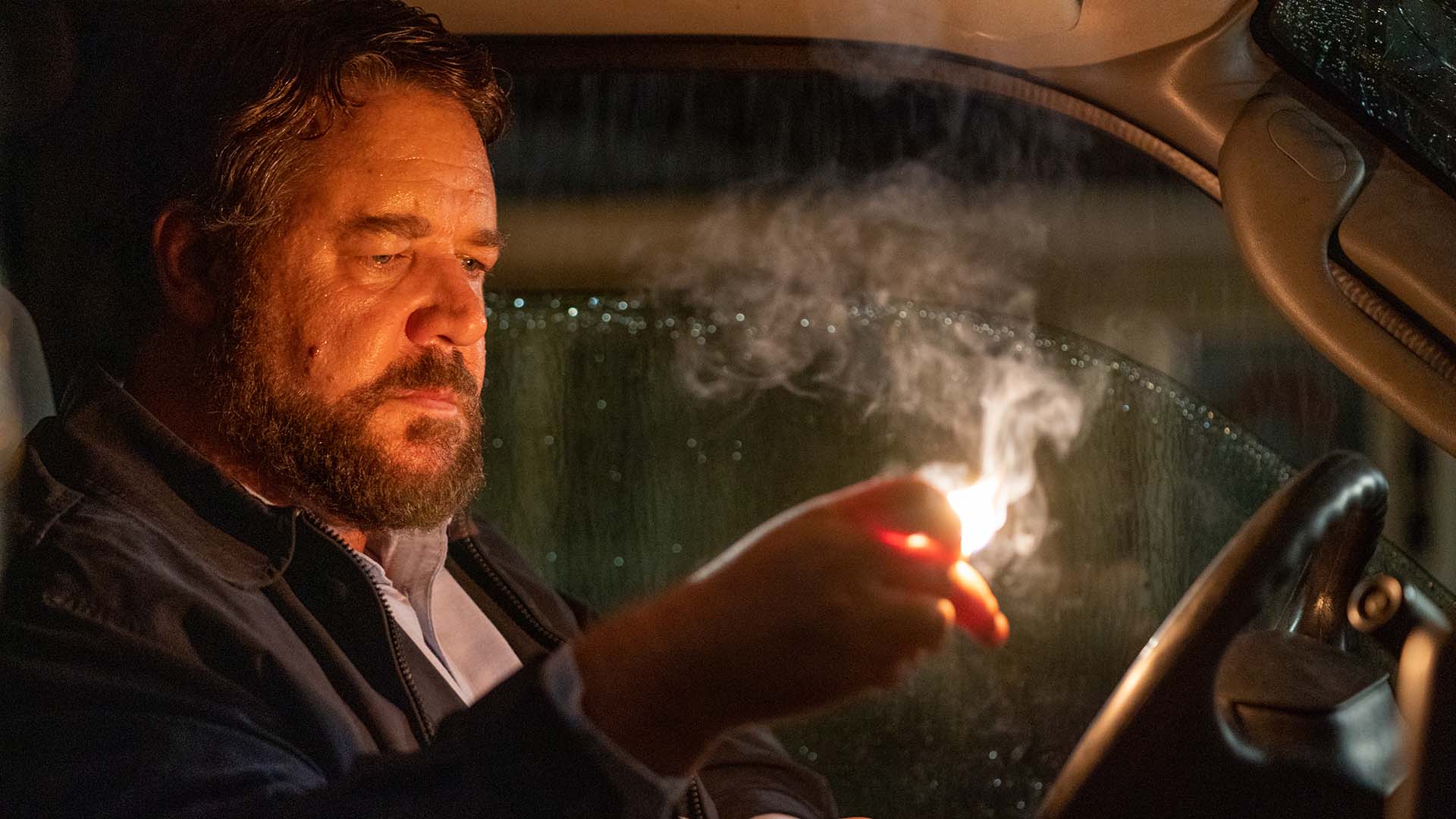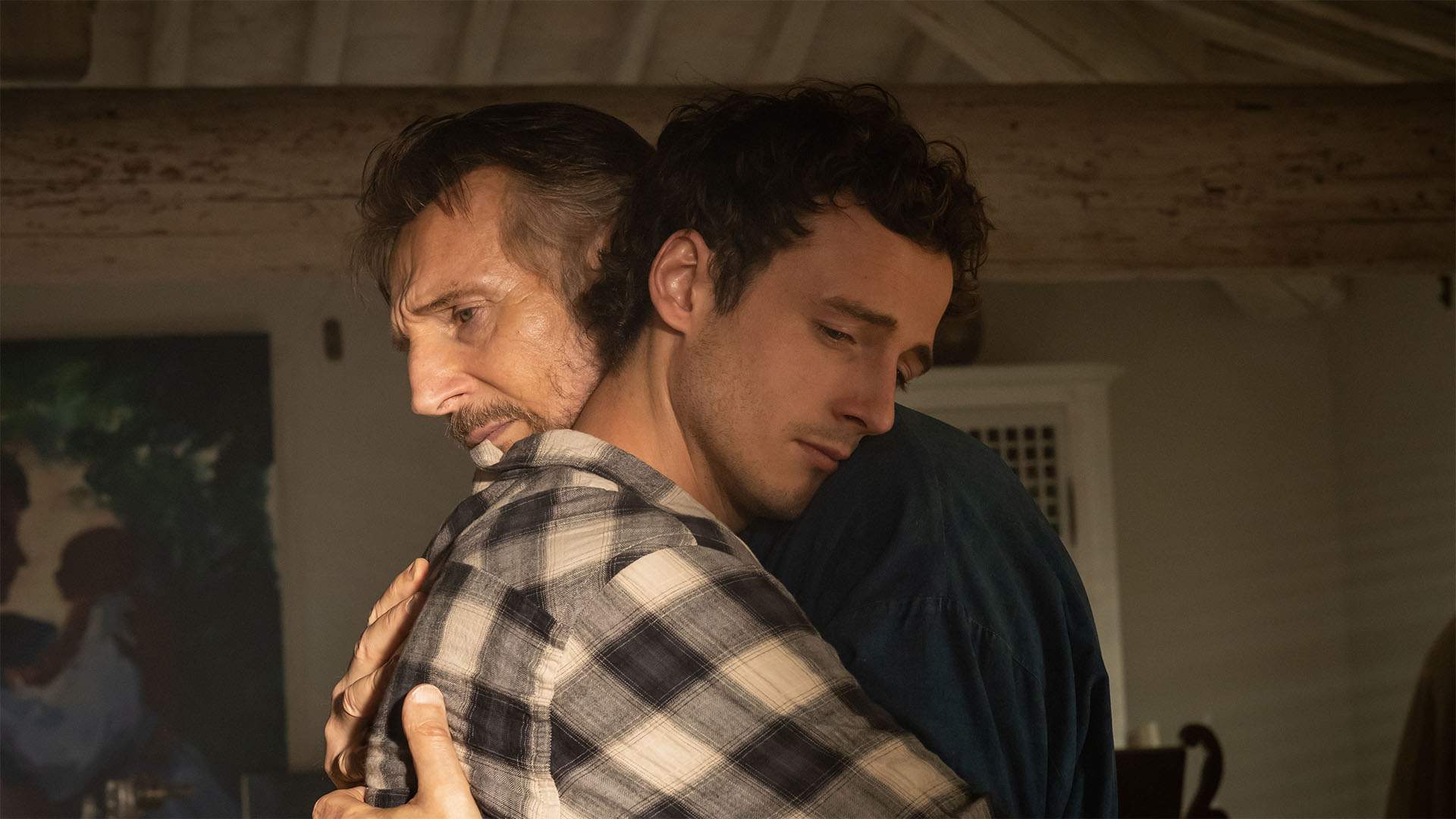The New Movies You Can Watch at Melbourne's Outdoor Cinemas When They Reopen
Sit under the stars to watch the return of Bill and Ted, a new version of a childhood favourite and two Liam Neeson flicks.
Something delightful is happening at Melbourne's outdoor cinemas. After months spent empty, with projectors silent and the smell of popcorn fading, outside picture palaces have been given the green light to reopen — including the Coburg Drive-In, and the Lido, Classic and Cameo outdoor cinemas.
During COVID-19 lockdowns, no one was short on things to watch, of course. In fact, you probably feel like you've streamed every movie ever made this year, including new releases, comedies, music documentaries, Studio Ghibli's animated fare and Nicolas Cage-starring flicks. But, even if you've spent all your time of late glued to your small screen, we're betting you just can't wait to sit under the stars and soak up the splendour of the bigger version. Thankfully, plenty of new films are hitting outdoor cinemas so that you can do just that — and we've rounded up, watched and reviewed everything on offer from this week.

BILL & TED FACE THE MUSIC
When it comes to goofy and sweet movie concepts handled with sincerity, the Bill & Ted franchise has always proven most triumphant. In 1989's Bill & Ted's Excellent Adventure, the big-screen comedy series introduced the world to Californian high schoolers Bill S Preston, Esq (Alex Winter) and Ted 'Theodore' Logan (Keanu Reeves), who are apparently destined to write the rock song that unites the universe — if they can first pass their history exam by travelling back in time in a phone booth to recruit famed past figures like Beethoven and Socrates to help, that is. The idea that Bill & Ted's affable, air guitar-playing slackers would become the world's salvation was a joke that the film itself was in on, and the movie struck the right balance of silliness, earnestness and affection as a result. So, the end product was joyous. And, it inspired two follow-ups: 1991's even loopier but still entertaining Bill & Ted's Bogus Journey, and now Bill & Ted Face the Music's affectionate dose of warm-hearted lunacy almost three decades later.
Bill (Winter) and Ted (Reeves) are back, obviously. They're older, definitely not wiser, and yet again take a few leaps through time. The fate of life as everyone knows it is still at stake. And, as always, the loveable pair's motto — "be excellent to each other" — is pivotal. Combine all of the above with marital malaise, chip-off-the-old-block daughters Theadora (Ready or Not's Samara Weaving) and Wilhelmina (Atypical's Brigette Lundy-Paine), multiple Bills and Teds, and a 77-minute deadline to write the tune the changes the future, and Face the Music saunters casually forward with a purposeful sense of familiarity. Thankfully, though, this film isn't merely trying to relive past glories. In fact, the very notion that some dreams don't come true sits at the core of this tender and loving movie. Naturally, it's a delight to see Winter and Reeves reprise their roles. They step back into Bill and Ted's shoes with ease, expertly conveying the characters' lingering immaturity, middle-aged malaise and ever-present kindness. They're also clearly having a blast as different versions of the duo, and their enthusiasm is infectious. But when Face the Music finds a plethora of ways to illustrate the merits of their characters' optimistic and warm mindset, it's at its best. Far from bogus, the heartfelt happiness it brings is 100-percent excellent.
Read our full review.

AN AMERICAN PICKLE
If an early 20th-century Jewish immigrant found himself walking around in 2019, what would he think of the world? That question comes with a flipside, of course, because it's equally valid to wonder how today's folks would react in response. With Seth Rogen starring as a ditch-digging, rat-catching new arrival from Eastern Europe to Brooklyn, these are a couple of the queries pondered by An American Pickle. It's the latest in a long line of comedies that trifle with time while doubling as time capsules, and it falls firmly from a familiar mould. Indeed, seeing, examining and giggling at the contrast between century-old ways and contemporary ideas is a considerable part of the film. Not only that, but this Simon Rich-penned adaptation of his own short story Sell Out does all of the above broadly and blatantly — pointing out that big, bushy beards have become hipster beacons, for example, and that much has progressed since the 1900s.
Consequently, there's no avoiding just how slight An American Pickle is. Its protagonist might fall into a vat of brine, get sealed in, then emerge in a new millennium, but this movie isn't diving deep. Thankfully, mixed up with all the obvious jokes are two thoughtful performances, both by Rogen, that help the film interrogate the push and pull between the past and the present in a moving fashion. He plays Herschel Greenbaum, a new arrival to US with his wife Sarah (Succession's Sarah Snook), after the pair leave their home of Schlupsk to escape Russian Cossacks and chase a better life — and he also steps into the shoes of app developer Ben Greenbaum, Herschel's great-grandson and only living descendant when he awakens in his preserved (and presumably extra salty) state. The two men are the same age, and look alike, but they sport differences beyond Herschel's facial hair and Ben's technological know-how. It's the usual generational divide, as instantly recognisable to everyone watching. But when An American Pickle lets its star shine, rather than gets weighed down with over-the-top clashes in the service of clearcut gags and satirical observations, this affable but also mostly forgettable film boasts heart and sweetness. It's oh-so predictable, but it also shows an understanding of how the past always leaves an imprint, the future needn't fastidiously be chained to tradition, and that everything old and all things new have a symbiotic relationship.
Read our full review.

THE CRAFT: LEGACY
Written and directed by actor-turned-filmmaker Zoe Lister-Jones (Band Aid), The Craft: Legacy is clearly the product of someone who knows and appreciates its 1996 cult-favourite predecessor. It's also the work of someone keen to pay tribute to the original — a horror-thriller about teen witches using and abusing magic to cope with high school's troubles — and embrace what she sees as its strengths, as well as redress its wrongs, update it for a new time and a new generation of teens, and verbally and visibly champion inclusivity at every turn. But it's possible for a 24-years-later follow-up to show affection, make some smart changes, move with the times and still feel like the remnants left in a cauldron. Or, for it to recall one of The Craft's famed moments — one that The Craft: Legacy recreates, briefly — in an unintended fashion. When this feature's coven play with levitation, the words "light as a feather, stiff as a board" aren't heard; however, by the end of the movie, they best describe everything that's just happened.
Starting as its inspiration did, The Craft: Legacy begins with Lily (Cailee Spaeny, Devs) and her mother Helen (Michelle Monaghan, Saint Judy) arriving in a new town, to move in with the latter's self-help author boyfriend (David Duchovny, playing a character who has penned a book called 'The Hallowed Masculine') and his three sons. Navigating school, Lily soon finds herself taunted by resident jock and bully (Nicholas Galitzine, Share) — but she's also found by witchy trio Lourdes (Zoey Luna, Pose), Frankie (Gideon Adlon, Blockers) and Tabby (Lovie Simone, Selah and the Spades), who are looking for the west to their north, south and east. Rather than seeing these young women become consumed by their blossoming power, and also punishing those who refuse to conform, it's a welcome shift that The Craft: Legacy calls out the patriarchal norms and attitudes that routinely put teenage girls in that situation. And yet the film just seems happy enough to have made that switch, instead of giving it any true weight or substantial depth. It's light thematically, visually, tonally and emotionally, and it also sports a stiffness — as though it's trying so hard to be loose, open, breezy and upbeat that it actually proves bland, strained and wooden instead.
Read our full review.

RAMS
It's easy to see how Australian filmmakers watched Rams, the 2015 Icelandic movie about duelling sheep-farmer brothers, and realised that they could bring its story Down Under. In fact, it's easy because director Jeremy Sims (Last Cab to Darwin) and screenwriter Jules Duncan (a feature first-timer) make certain that that's the case — ensuring that viewers can see every choice they've taken in giving the story the Aussie treatment. It's all to be expected, of course, but it feels not only overt but also calculating. Indeed, Rams often seems like a remake that only exists because someone gleaned just how simple it'd be to make it happen (and noticed that the Cannes prize-winning initial flick had picked up quite a following, too). It swaps the original movie's frosty blizzard for drought, heat and bushfires, and its Nordic scenery for Western Australian tourism brochure-style shots. It brings in a cast of familiar faces, spanning both beloved local talents (such as Michael Caton and Asher Keddie) and actors we've virtually claimed as our own (Sam Neill). It leans into Aussie dialogue, scenes in pubs, small-town stereotypes and larrikin behaviour, localising every element possible, while also sticking steadfastly to the bulk of its predecessor's main narrative details (as anyone who has seen the latter will swiftly spot).
For decades, brothers Colin (Neill) and Les (Caton) haven't spoken. They lovingly tend to their flocks on adjoining properties, send messages to each other via sheepdog when absolutely necessary and cross paths at local livestock competitions, but a lingering grudge has long since soured their familial bond. Then Les wins the latest contest, Colin notices that the applauded ram might be plagued by a contagious disease, and the duo are forced to band together or face the complete decimation of the only lives they've ever known. Instead of thoughtfully unpacking a plethora of contrasts — between the central siblings, by juxtaposing their close proximity with their strained relationship, in both prosperous and struggling times, and in trying to control nature in various ways — this version of Rams struggles with balance. That includes its efforts to juggle quirky comedy with its more serious dramatic sections, and in offering thoughtful commentary on men coping with their emotions and rural communities battling tough times. Cast-wise, Neill fares best thanks to a lived-in performance, with Caton in stock-standard cantankerous mode, and British actor Miranda Richardson (Churchill, the Harry Potter franchise) wasted in a thankless supporting part.

ANTEBELLUM
Watching the sprawling, roving and weaving single-take shot that opens Antebellum, it helps to know what the movie's title actually means. The term refers to a time before a war, and is typically used in relation to the American Civil War — but in the film's eye-catching introduction, it certainly seems as if that historical conflict is raging away. On a southern plantation, Confederate soldiers under the leadership of Captain Jasper (Jack Huston) terrorise the property's enslaved Black workers with brutality and cruelty. Attempted runaway Eden (Janelle Monáe) is one of them, and subject not just to beatings, brandings and forced labour, but also raped regularly by the general (Eric Lange) who has claimed her as his own. She's planning another escape; however, thoroughly unexpectedly given the surroundings, a mobile phone suddenly rings. Now Monáe's character is called Veronica Henley, she's a well-known activist and author, and everything about her life (including the conference in New Orleans she attends) is firmly set in the 21st century.
Obviously, how Monáe's dual roles intertwine is best discovered by watching — as is the involvement of Jena Malone's (Too Old to Die Young) Elizabeth, the plantation's resident belle as well as a modern-day caller for Veronica — but Antebellum proves far less powerful and clever than it thinks it is. While first-time writer-directors Gerard Bush and Christopher Renz blatantly try to follow in Jordan Peele's footsteps, using horror to explore race relations in America both in the present day and in the country's history, their efforts rely so heavily on one big twist that the movie resembles M Night Shyamalan's lesser works more than Get Out, Us or TV series Lovecraft Country. In endeavouring to unpack systemic racism, there's a smart idea at the heart the feature. Visually, Antebellum's always-lurid, often-violent imagery isn't easily forgotten, and the film also boasts a masterly performance by Moonlight and Hidden Figures star Monáe. And yet, connecting all those pieces together feels more like an exercise in making a provocative genre film than actually saying something meaningful about engrained prejudice in the US — a topic that, sadly, continues to remain timely, but is treated here as stock-standard horror fodder.
Read our full review.

HONEST THIEF
Another Liam Neeson-starring movie, another bland action film with little else going for it beyond its main attraction. The genre must pay well, but it has sadly been years since the Irish actor's particular set of skills anchored a fist-flinging, chase-filled feature worthy of his talents. In Honest Thief, Neeson plays elusive bank robber Tom, who is also known as the 'in-and-out bandit'. A year after unexpectedly falling in love with psychology graduate student Annie (Kate Walsh) — and a year after he last indulged his pilfering urges, too — he decides to turn himself in to the FBI in exchange for a lesser sentence and the chance to make a real future. Answering his call, agents Baker (Robert Patrick) and Meyers (Jeffrey Donavan) are skeptical that he's actual the culprit. When their colleagues Nivens (Jai Courtney) and Hall (Anthony Ramos) are given the case, however, they take another approach that sees Neeson rushing around Boston and fighting for his life against corrupt, trigger-happy law enforcement officials.
There's only one real surprise in store in Honest Thief, a movie that writer/director Mark Williams (A Family Man) and his co-scribe Steve Ullrich (The Timber) could've almost cobbled together using scenes from other Neeson action vehicles. No one is astonished that, despite being a bank robber, Neeson's character is the movie's hero. No one should expect anything unusual in its workman-like action choreography or by-the-numbers plot, either. But the fact that the movie also features a heap of well-known names and faces alongside Neeson — including The Umbrella Academy's Walsh, The X-Files' Patrick, Fargo's Donovan, Aussie Stateless star Courtney and Hamilton's Ramos — is a little startling. They're all wasted, because Honest Thief only tasks its other actors with giving Neeson someone to talk to, kiss, hunt down or flee. That's how generic this addition to his resume proves. Indeed, 2020 hasn't been great for Neeson fans, even with Made in Italy (see below) eschewing action for father-son bonding. His most recent great roles might've only been back in 2016 and 2018, courtesy of Silence, Widows and The Ballad of Buster Scruggs, but they currently seem like a distant memory.

MADE IN ITALY
In Made in Italy, Liam Neeson and his real-life son Micheál Richardson (Vox Lux, Cold Pursuit) recreate their relationship on-screen. In another case of art imitating life, they also play a parent-offspring pair still struggling to cope with the loss of the former's wife and the latter's mother after a tragic accident — with Neeson's partner and Richardson's mum, aka actor Natasha Richardson, passing away following a skiing incident in 2009. But, while this romantic drama's stars might've enjoyed a leisurely trip abroad to relive a situation that's close to their hearts in an immensely scenic location, and get paid for it, Made in Italy isn't a personal or even a sensitive and moving film. If only it was. The feature directorial debut of actor-turned-filmmaker James D'Arcy (Dunkirk, The Snowman), if only it offered anything other than a bland, by-the-numbers tale about two men blighted by grief, forced to confront their issues and pain, and eventually learning how to move on.
Neeson plays Robert, a famous artist who is barely a part of his curator son Jack's (Richardson) life. They're brought together out of necessity, after Jack's soon-to-be ex-wife threatens to sell the gallery he has devoted his career to, leaving him in need of cash — and fast. His solution: to fix up and sell the Italian villa that he inherited from his mum, although his dad also owns half of the property. Cue family dysfunction unfurling in gorgeous surroundings, a stock-standard romance between Jack and a local chef (Valeria Bilello), and a very forgettable appearance by the great Lindsay Duncan (The Leftovers, Sherlock, Le Week-End) as a matter-of-fact real estate agent. As nice as it is to see Neeson in something other than a routine action flicks (see above), here he's in bland and limp as well as unengagingly generic territory. The Italian countryside does look mighty spectacular, naturally, but that really shouldn't be the movie's main and most substantial drawcard.

THE SECRET GARDEN
When The Secret Garden first reached the page as a serialised story in 1910, author Frances Hodgson Burnett couldn't have known how relevant her tale would feel 110 years later. Obviously she'll never know, as she passed away in 1924 — but if there was ever a time for a new big-screen version of this beloved children's favourite about escaping life's woes by banding together, making the most of things and enjoying the pockets of nature at hand, it's 2020. Indeed, while this new cinematic iteration was actually due to hit screens earlier this year, which means that it was made pre-pandemic, it firmly strikes a chord in these strange times. Whether you loved the book when you were much smaller, you can barely remember it, or you're more familiar with the narrative from the 1993 movie, a lavishly shot fantasy about a unhappy girl plagued by tragedy yet finding solace in the titular space couldn't be more fitting right now.
The narrative, for those who need a refresher, focuses on the pre-teen Mary (Dixie Egerickx, The Little Stranger) — who swiftly segues from from living in India under British rule to being sent to the Yorkshire moors to stay with her reclusive uncle (Colin Firth) when her parents are killed. She's bratty, spoiled and far from content about the new arrangement, but wandering the estate's sizeable grounds soon brings her to a hidden patch of greenery. Under the direction of TV veteran Marc Munden (Black Sails, National Treasure), this version of the tale takes place after the Second World War, but that's not the only change. It relays the same overall details, but it also leans into the darkness and gothic drama of the material in a firm and noticeable way. Perhaps that's another reason why it also feels apt for viewers young and young-at-heart — because overcoming loss, misery and struggle always comes with a sense of weight and, amidst its expected leafy sights and general childhood wonder, this take on The Secret Garden never forgets that.

AFTER WE COLLIDED
The worst movie of 2019 now has a sequel, and it's on track to claim that exact same title in 2020. Originally penned as Harry Styles fan fiction, the After series takes a leaf out of Twilight and 50 Shades of Grey's books by holding up a thoroughly toxic relationship as the ultimate in epic romances — this time focusing on the on-again, off-again exploits of two college students. In After, Tessa Young (Josephine Langford, the Wolf Creek TV series) and Hardin Scott (Hero Tiffin Fiennes, Harry Potter and the Half-Blood Prince) met, opposites attracted and a hot-and-heavy affair kicked off, although the rebellious Hardin sought after the virginal Tessa with shady intentions. Accordingly, when After We Collided meets back up with the duo, they're no longer seeing each other. But the brooding Hardin is still unhealthily obsessed, and the supposedly smart and conscientious but actually overtly insecure Tessa can't help but make reigniting their bond the latest entry on her lengthy (and expanding) list of bad decisions.
This time around, the plot uses Tessa's new internship as its reason for a fresh spate of terrible dialogue, as well as its source of drama. It's in publishing, in case 50 Shades didn't already spring to mind, and it's one of those fantasy jobs where the lowest person in the company's hierarchy gets their own office to sit around and read manuscripts in all day. Shameless and steamy wish fulfilment is exactly this franchise's aim, of course — but the big dream that author and After We Collided co-screenwriter Anna Todd pushes is constantly insulting, with the series repeatedly telling its audience that being loved by a moody, erratic bad boy, and taking the breakups, fights and stalking with the gifts and shower sex, is the ultimate fate. This sequel also throws a romantic rival into the mix, courtesy of Tessa's straight-laced colleague Trevor Matthews (Dylan Sprouse, twin brother of Riverdale's Cole Sprouse), and where that narrative strand goes proves as predictable as everything else in the film. Although he has Cruel Intentions on his resume, director Roger Kumble only adds superficial gloss and no signs of interest or excitement; however given that two more After books exist — After We Fell and After Ever Happy — it's highly likely two more movies will, too.

UNHINGED
When Russell Crowe was cast in Unhinged, more than a few folks must've had a giggle — including the actor himself. The New Zealand-born Oscar-winner was famously arrested back in 2005 for throwing a mobile phone, after all, so enlisting him to veer off the deep end while clutching onto a phone was surely done with some winking and nodding in mind. Unhinged isn't a comedy, however. Given its premise, narrative and tone, it really couldn't be. A predictable and pulpy road-rage thriller, this grimly generic, thematically questionable film by director Derrick Borte (The Joneses) and writer Carl Ellsworth (Red Eye, Disturbia) tasks a puffed-up, scowling, growling Rusty with chasing terrified single mother Rachel (Caren Pistorius) around an unnamed US city purely because his entitled, just-divorced psychopath character is unhappy about her lack of driving courtesy. Her supposed crime: beeping her horn after he doesn't move his giant 4WD when the traffic light turns green on a busy weekday morning.
In terms of story, that's largely all there is to this flimsy B-movie-style film. Both main characters have relationship struggles in their recent past, and Rachel has a pre-teen son (Gabriel Bateman) and other loved ones to worry about, but Unhinged is more interested in a mood of menace than any real detail — although the fact that its relentless car chase and carnage scenes are all shot and edited in the same way, and therefore mostly look the same, hardly imparts any tension. Also firmly on the movie's agenda: trying to explain away its villain's homicidal behaviour with broad generalisations about the world being an angry place right now. Oh, and even suggesting that Rachel has a hand in causing the traumatic ordeal. Yes, really. Crowe flings everything he has into his one-note part, although his forceful portrayal was never going to patch over the feature's silly plotting, its murky and infuriating message, or the reality that this is a movie about a toxic middle-aged man terrorising a woman because he's certain the world owes him respect. He's memorable, undoubtedly, but Crowe is also nowhere near as impressive as he has been in the recent True History of the Kelly Gang and The Loudest Voice, either.

TROLLS WORLD TOUR
Fuzzy-haired playthings turned into animated heroes, glitter fart clouds and cupcakes poop, and a lengthy list of earworm-style songs: that's what 2016's Trolls served up. It was loud, shiny and sickly sweet, but it also featured lively voicework from Anna Kendrick and standout handmade-looking visuals, which made the film's CGI look as if it had been made from felt and other crafting products. Naturally, the all-ages movie was a hit, like most flicks based on toys and simultaneously designed to sell more toys. So, it's to the surprise of absolutely no one that sequel Trolls World Tour now exists, and that it's once again using bright and bouncy visuals and a jukebox-musical style format to appeal to viewers young and old, and to spread a positive message — again, as efforts like this are known to.
With Kendrick back as the perky Queen Poppy and Justin Timberlake once again voicing her best friend Branch, this follow-up returns to the first film's trolls as they learn that other creatures like them exist. They're not exactly the same, though, with different troll groups favouring varying styles of music — making Poppy's community the 'pop trolls'. Clearly, as the villainous Queen Barb (Rachel Bloom, Crazy Ex-Girlfriend) of the hard rock trolls tries to make the separate tribes assimilate under her preferred style of music, there's an overt message about acceptance on offer. It isn't subtle, and it's actually undercut by the fact that the different troll crews (including techno trolls, funk trolls, classical trolls and country trolls) are all given such blatantly stereotypical traits. But, once more, the film is lifted by its cast (complete with Sam Rockwell and Ozzy Osbourne), it's textile appearance and the fact that it actually works its ongoing medley of well-known songs into the story, rather than merely uses them as an easy distraction technique as many fellow Hollywood-made animated movies do.
